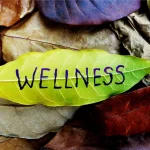The Art of Forgiveness
Forgiveness is a powerful act of healing and liberation that allows you to let go of past hurts and embrace a brighter future. In the grand tapestry of the universe, holding onto anger, resentment, or guilt only weighs you down and hinders your growth. By practicing forgiveness, you free yourself from these burdens, opening the door to peace, love, and new possibilities. Forgiveness is often misunderstood as condoning or forgetting the wrongdoing. However, it is not about excusing harmful behavior or pretending it never happened. Instead, forgiveness is about releasing the hold that the past has on you, allowing yourself to move forward without the heavy baggage of negative emotions.
Consider the story of a young woman who was deeply hurt by a friend’s betrayal. For years, she carried the pain and anger with her, allowing it to affect her relationships and overall happiness. One day, she realized that holding onto this resentment was only hurting her. She decided to forgive her friend, not because the betrayal was acceptable, but because she deserved to be free from the emotional prison it had created. In letting go, she found a sense of peace and was able to rebuild her life with a renewed sense of hope and trust. Forgiveness is a process that begins with a decision to let go of resentment and embrace healing. It involves acknowledging your pain, understanding the impact it has had on your life, and choosing to release it.
One powerful exercise to facilitate forgiveness is writing a letter to the person who hurt you. In this letter, express your feelings honestly and openly. Write about the pain they caused and how it affected you. Then, make a conscious decision to forgive them and write about your desire to let go of the past and move forward. You don’t need to send this letter; the act of writing it can be a cathartic and healing experience. Self-forgiveness is equally important. Often, the hardest person to forgive is yourself. You may carry guilt or regret over past mistakes, holding onto a sense of unworthiness. Practicing self-forgiveness involves recognizing that you are human and that making mistakes is a natural part of growth. Instead of judging yourself harshly, offer yourself the same compassion and understanding you would extend to a loved one.
Forgiveness does not mean you have to reconcile with those who have hurt you, especially if they are toxic or harmful. It is about finding inner peace and letting go of the emotional turmoil. In some cases, it may be healthier to maintain distance while still holding a space of forgiveness in your heart. As you practice forgiveness, you may find that it transforms your relationships and your overall perspective on life. It can lead to deeper connections, greater empathy, and a sense of liberation that comes from releasing the past. Forgiveness is a gift you give to yourself, allowing you to live more fully in the present and embrace the future with an open heart.
As you practice forgiveness, you may find that it transforms your relationships and your overall perspective on life. It can lead to deeper connections, greater empathy, and a sense of liberation that comes from releasing the past. Forgiveness is a gift you give to yourself, allowing you to live more fully in the present and embrace the future with an open heart.
Today’s Affirmation:
“I choose to forgive and let go of past hurts. I release resentment and embrace peace, love, and healing. I am worthy of forgiveness, and I offer it to myself and others with an open heart.”






